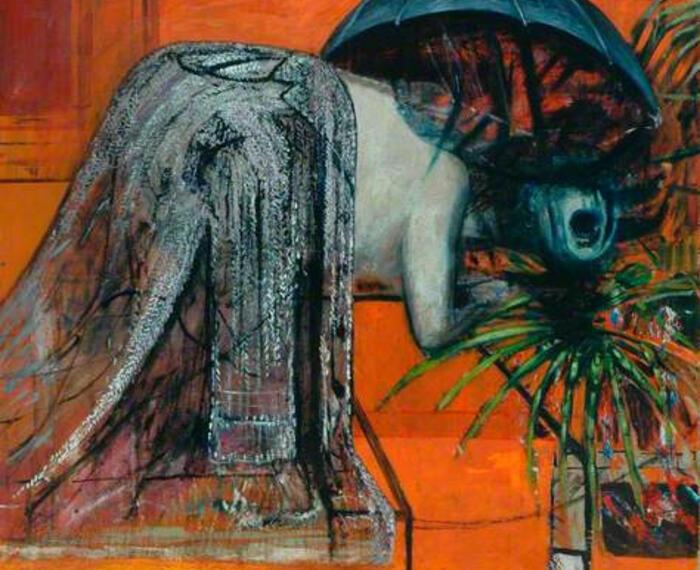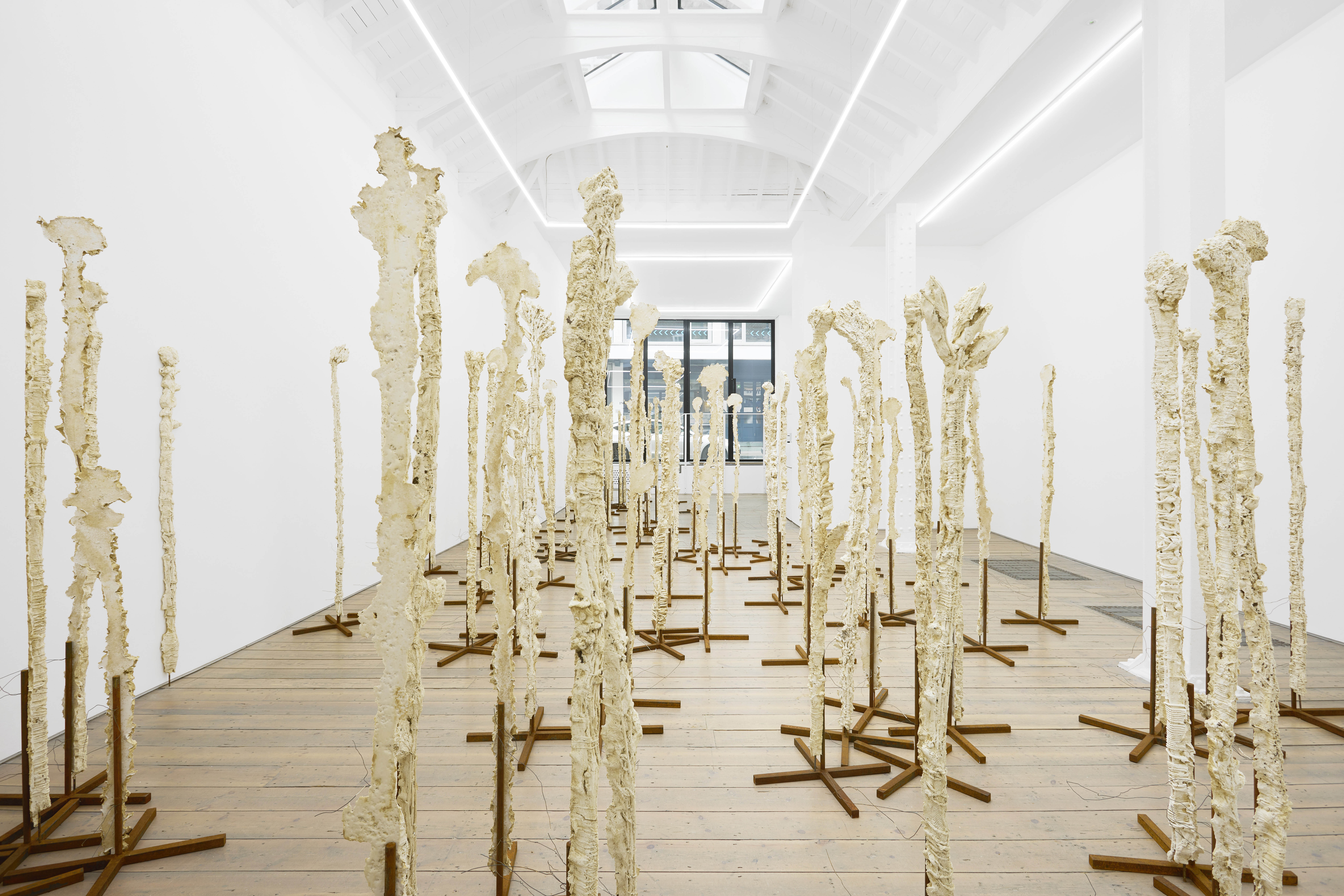


Jodie Carey, Guard, installation view, Edel Assanti, London, 2024. © Jodie Carey. Courtesy Edel Assanti and Jodie Carey. Photo by Tom Carter
Edel Assanti
1B Little Titchfield St, London W1W 7BU
‘Guard’ is Jodie Carey’s 5th solo exhibition at Edel Assanti Gallery. Presented across the bright interconnected spaces of the ground floor gallery, the artist has created a winding path consisting of 150 tall and slender jesmonite sculptures, fixed onto steel support structures.
Plant life is a recurring theme in Carey’s practise to explore notions of rite, remembrance and death, for example she has used flowers to make dyes to colour thread that is woven and crocheted into large textile pieces.
‘We infill plants with meaning for many reasons; they remind us of people we’ve loved or times in our lives. ‘Guard’ seeks to remind us of the stubbornness of life, the human ability to evolve and adapt and ultimately our desire to survive’ is how the artist describes her fascination with the resilience of the plants and weeds that she finds in the concrete yard of her studio, on playgrounds, roadsides and derelict spaces across London after lockdown.
These assembled plants form the basis of an ‘army’ of static, guard-like figures in the exhibition, which on closer inspection, appear to be individual casts of weeds, flowers, roots and plants bound with thread and cloth. Using the ancient process of earth casting, Carey forms moulds by pressing the plants directly into earth. Then she pours jesmonite into the rudimentary imprint in the soil. After the sculptures are dry, she removes the earth around them with a hose and toothbrush.
The resulting tall and elegant sculptures reveal stunningly detailed traces of fabric, stones, leaves and roots. They subtly vary in tone and radiate an aura of timeless presence. Yet when encountering the imprints of the original plants that cease to exist just after a few hours we are reminded of the impermanence of life, evoking the tradition of Vanitas still lives.
Binding with thread and cloth is deeply rooted in traditional rituals and ceremonies. While preparing for ‘Guard’, the artist selected and bound the plants to create the earth casts in a labour-intensive process in her studio over the course of nine months. Personal stories are woven in, for example, the seeds of the sunflowers in the installation were planted by Carey’s children. However, she also hints to how flowers serve as powerful symbols of cultural identity, conflict and remembrance, for example sunflowers are a recognisable symbol of resistance and solidarity in the Ukraine war.
Overall, the show powerfully explores the enduring connection between humans and nature, highlighting the resilience of plant life in an era of human inflicted climate crisis. Working with fragile and ephemeral materials, Carey’s installations challenge the monumentality traditionally associated with the medium of sculpture.
For ‘Guard’, Carey has created a contemplative space where the viewer is invited to reflect on the impermanence of life and our relationship to the plants and weeds we tend to overlook in our busy everyday lives.
When moving through this beautifully created forest of sculptures, I find myself wondering what is classified as weed and what is considered as a flower and how this changes over time – as many plants we consider as weed today were used for medical purposes in the past.
Christine Takengny
The Roden Senior Curator, Museum Acquisitions
Jodie Carey, 'Guard' at Edel Assanti, London
1B Little Titchfield St, London W1W 7BU
30 May – 23 August 2024